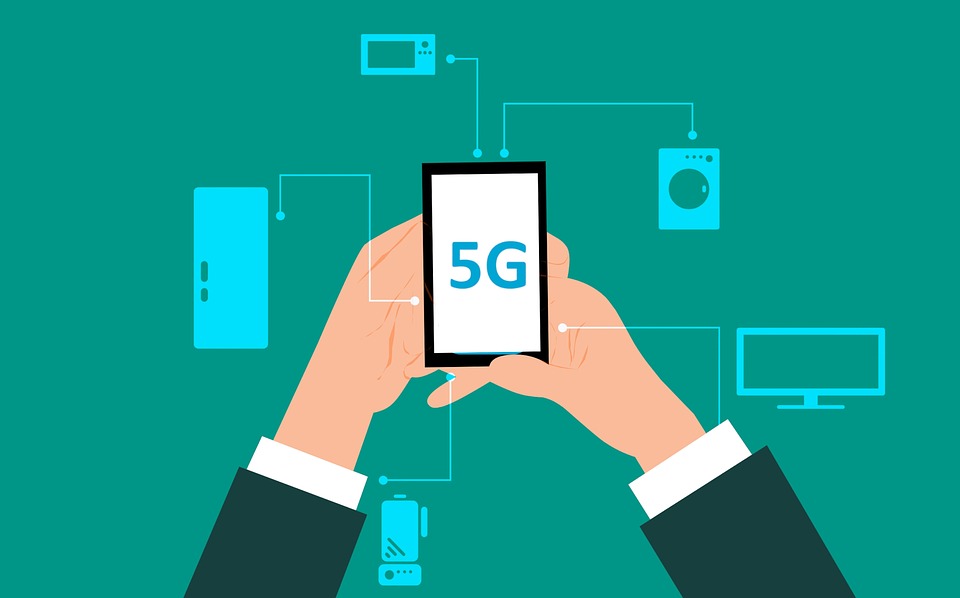In 1973, Motorola employee Martin Cooper stood in Midtown Manhattan and placed the first ever cell phone call to Bell Labs in New Jersey. Almost twenty years later, Neil Papworth sent the first ever text message, “Merry Christmas,” to a Vodafone executive in England. Fast-forward fifteen years to 2007, and Steve Jobs unveils the first ever iPhone at MacWorld. Today, we stand on the cusp of another mobile revolution that will forever alter the way we communicate with each other and our surroundings – 5G.
5G will accelerate download speeds to an average of 10GBps, a significant increase from 4G’s 20MBps. Instead of staring at a screen for minutes or even hours while a movie downloads, 5G will cut this download time down to only a few seconds.
The fifth generation of mobile networks, 5G, will usher in a new era of mobile communication and connectivity, making networks faster and more reliable than ever. 5G will accelerate download speeds to an average of 10GBps, a significant increase from 4G’s 20MBps. Instead of staring at a screen for minutes or even hours while a movie downloads, 5G will cut this download time down to only a few seconds. While faster internet and download speeds are great, this new technology will feature incredibly low latency times, allowing networks to process more information with less delay. This feature has implications far beyond movie night – 5G will allow devices to communicate ever closer to real-time
The low latency of 5G has the power to reinvent existing industries and help spur the development of new ones. The development and proliferation of autonomous vehicles will rely heavily on the implementation of 5G. In the future, autonomous vehicles will need to communicate with their surroundings instantly. Whether it’s other autonomous vehicles, the road’s infrastructure, or human error – with 5G, autonomous vehicles will become safer, smarter, and faster than ever. With this advanced communication, cars will be able to group together on the highway, becoming more aerodynamic and improving fuel efficiency. Autonomous driving will become seamless, but for most people, the Internet of Things (IoT) is where 5G has the power to transform lives.
Latency has limited the development of the Internet of Things, the network of devices including home appliances and everyday objects that communicate using the internet. The Internet of Things relies heavily on cloud networks with 4G foundations, and there is simply too much data to process efficiently. But all this is set to change with 5G, as its near-zero latency will be able to handle mass amounts of data.This will allow the creation of wearable devices and chips that lack intensive computing hardware, but will still be better able to process information.
With 5G, smartphones, washing machines, ovens, televisions, and even traffic lights will all be able to communicate with each other through the Internet of Things. This means an air conditioner will turn on when someone is almost home, saving energy, money, and providing a refreshing return home. Slow-cookers will be remotely controlled, turning an ordinary device into a personal chef that always has dinner ready. But these benefits transcend the household; the IoT has the power to revolutionize the healthcare industry though remote surgery. With no latency between devices, the IoT will allow surgeons to use robots equipped with cameras and sensors to perform surgery remotely on patients who lack access to expert medical care. For instance, a specialized heart surgeon in the New York will be able to operate on a patient in the middle of Iowa who is in critical condition and can neither risk nor afford travel; forever changing the way we view healthcare.
So when will we experience this connectivity revolution? While Verizon recently began to offer in-home broadband service at 5G speeds, a full scale 5G rollout will not be seen until around 2020. As for the autonomous vehicles and Internet of Things applications, development will be slower, however, connectivity will not. Nokia estimates that by 2020, over 50 billion devices will be connected; thus, this revolution is just around the bend. Whether it’s a faster way to download music, make higher quality video calls, or a new way to travel, 5G holds the solution to all of these problems, and it will be here sooner than anticipated.


